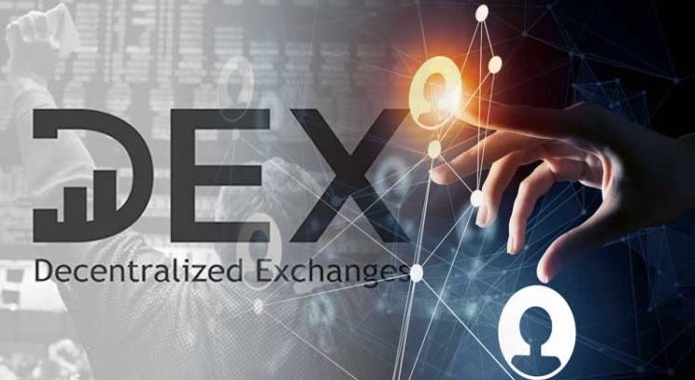Decentralized exchanges (DEXs) have emerged as a revolutionary force in the world of finance, providing a transparent, secure, and permissionless platform for trading digital assets. we will delve into the exciting realm of decentralized exchange development, exploring the key aspects and considerations that make DEXs a game-changer in the financial landscape.
Understanding Decentralized Exchanges
Definition and Core Principles:
Decentralized exchanges (DEXs) are platforms that enable users to trade digital assets directly with each other, without the need for intermediaries. The core principles of DEXs include trustlessness, where transactions are verified by smart contracts instead of relying on a central authority, peer-to-peer trading, and non-custodial transactions where users retain control over their funds.
Advantages of Decentralized Exchanges
Eliminating Intermediaries:
- Decentralized exchanges remove intermediaries, such as brokers or clearinghouses, enabling users to trade directly with each other. This eliminates the associated fees and reduces counterparty risk, as users have full control over their funds throughout the trading process.
Enhanced Privacy and Security:
- Transactions on decentralized exchanges occur directly between users' wallets, ensuring privacy and reducing the need for Know Your Customer (KYC) procedures. As a result, personal information is not stored on the exchange, offering enhanced security and protection against data breaches.
Global Accessibility:
- Decentralized exchanges are accessible to anyone with an internet connection. They remove geographical barriers, enabling users from around the world to participate in the global financial ecosystem. This fosters financial inclusion and empowers individuals who may not have access to traditional financial services.
Key Features of Decentralized Exchanges
Smart Contract Integration:
- Smart contracts facilitate the automated execution of trades on decentralized exchanges. They eliminate the need for intermediaries, ensuring transparency, efficiency, and the integrity of transactions.
Order Book and Liquidity Management:
- Decentralized exchanges use various mechanisms, such as order books and automated market-making algorithms, to facilitate order matching and maintain sufficient liquidity. These features ensure smooth trading experiences for users.
Wallet Integration:
- Decentralized exchanges integrate with users' wallets, allowing them to securely store and manage their digital assets directly on the exchange platform. This eliminates the need for users to deposit their funds into a centralized custodial wallet.
Decentralized Governance:
- Decentralized exchanges often employ decentralized governance models, where stakeholders can participate in decision-making processes. This allows users to have a say in the platform's development, upgrades, and community initiatives, fostering a sense of ownership and inclusivity.
Building a Decentralized Exchange
Selecting the Blockchain Platform:
- Choosing a suitable blockchain platform is crucial for building a decentralized exchange. Factors such as scalability, security, transaction speed, and community support should be considered.
Smart Contract Development:
- Developing robust and audited smart contracts is essential to ensure the proper functioning of the decentralized exchange. Thorough testing and security audits should be conducted to mitigate potential vulnerabilities.
User Interface and User Experience Design:
- Creating an intuitive user interface and seamless user experience is vital for attracting and retaining users. The design should prioritize simplicity, responsiveness, and accessibility to cater to a wide range of users.
Security Measures and Auditing:
- Implementing robust security measures, such as two-factor authentication, encryption, and secure key management, is critical to protect user funds. Regular security audits and vulnerability assessments should be conducted to identify and address potential risks.
Conclusion
Decentralized exchange development represents a paradigm shift in the world of finance, offering transparency, security, and accessibility to users worldwide. By understanding the core principles, advantages, key features, and successful case studies, individuals and organizations can contribute to the decentralized finance revolution and shape the future of finance. Let's embrace the transformative potential of decentralized exchanges as we navigate the exciting world of digital assets and borderless finance.


No comments yet